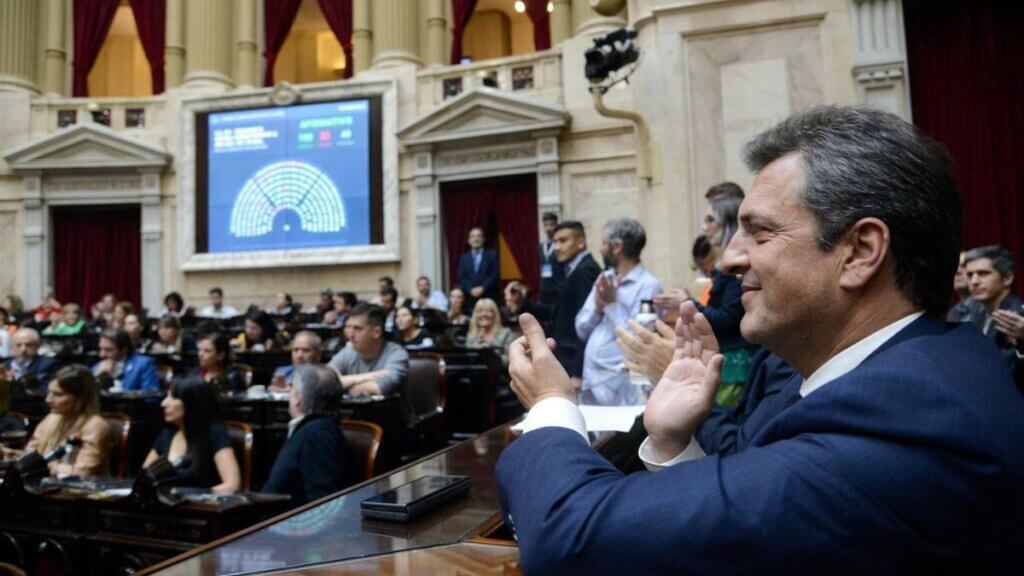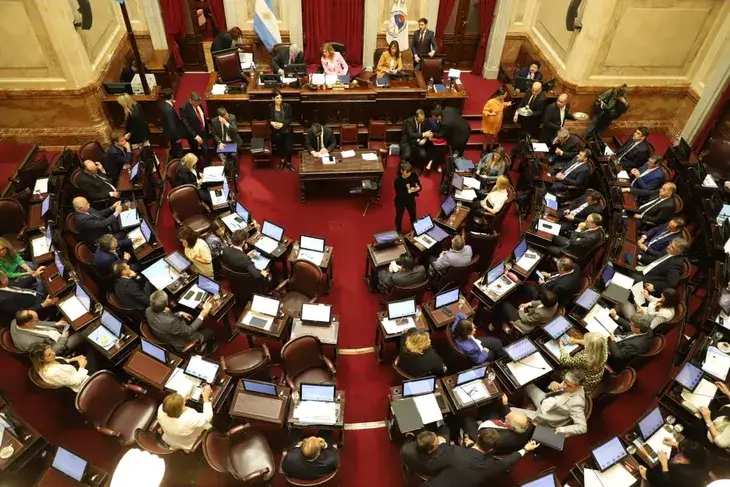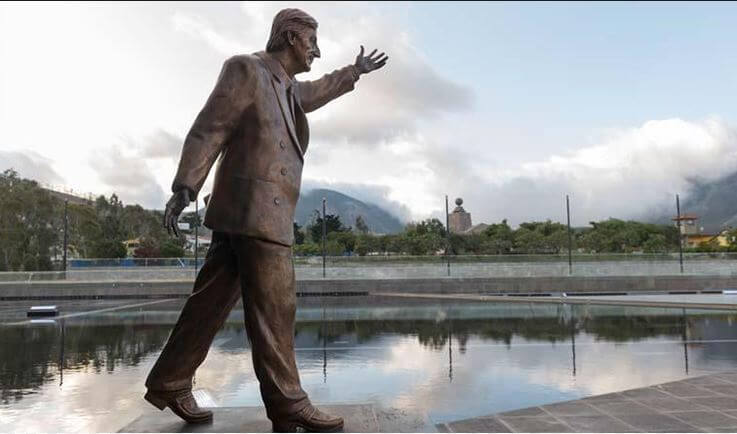Buenos Aires, Argentina — Argentina’s Senate on November 16 approved a national budget put forth by the government for 2023 after last year’s draft budget failed to make it through Congress for the first time since 1983. Next year’s budget aims to reduce Argentina’s fiscal deficit from 2.5% to 1.9%.
The budget bill passed in the opposition-controlled lower house of congress on October 26 after many changes, including an article that obliges the government to review the budget if inflation surpasses the predicted target by 10% or if the government’s tax collection rates fall more than 10% below their predicted targets by the end of August 2023.
In the Senate, which is controlled by ruling party’s coalition, “Frente de Todos,” the bill was passed by 37 senators who voted on it, with the opposition party refusing to participate in debates for the bill.
The bill, presented by Economy Minister Sergio Massa, outlines ARS $ 29 trillion (around $ 170 billion USD) in spending next year, and aims to reduce the deficit from 2.5% to 1.9% of GDP and keep inflation below 60%.

This year, Argentina’s annual inflation rate is expected to hit 100%, after reaching 76.6% in October. Also, the country’s fiscal deficit surpassed 2.5% of GDP as of August.
The budget plan also extends a set of taxes that were set to expire in December that reportedly account for 32% of the government’s yearly tax revenue.
The senator and president of the Budget and Finance Commission, Ricardo Guerra, said that the 2023 budget is “realistic” and that it “finances essential services, as well as government plan policies, but within a framework of restrictions given by a global context greatly influenced by a war that has a very important global impact.”
The right wing coalition “Juntos por el Cambio” refused to participate in the senate budget debate after the ruling party included a motion to appoint three “Frente de Todos” representatives to the Council of Magistrates, the body which appoints judges across the country.
“Cristina Fernández de Kirchner strains the institutional framework to the point of breaking it in order to serve her personal interests”, read a statement tweeted by the opposition party.
President Alberto Fernandez is expected to sign the budget into law in the next few days.










